|
A few weeks ago, the Pew Research Center released an article titled “Just one-third of U.S. Catholics agree with their church that Eucharist is body, blood of Christ.” Immediately after the study’s release, social media erupted with reactions of disbelief, shock, and anger, as well as theories of how to “fix this,” including greater catechesis and adjustments to our general liturgical practices. Despite the immediate reaction, there is no need for panic, as Christ assures the Church that “the gates of the netherworld shall not prevail against it,” (Matthew 16:18). Furthermore, jumping to such dire conclusions after one survey is not necessarily good pastoral or catechetical practice. As the Church examines the status of belief in the Real Presence and how to cultivate a greater understanding of that reality, she is also very aware of the need to deepen our encounter with Christ. As we ponder Christ’s presence in the Eucharist, we must ask ourselves if we have truly encountered him. In his encyclical letter Evangelii Gaudium, Pope Francis suggests that we “look at those first disciples, who, immediately after encountering the gaze of Jesus, went forth to proclaim him joyfully: ‘We have found the Messiah!’ (Jn 1:41).” In the end, how we catechize and what our liturgical practices are both require deeper reflection and greater discernment as to how God is calling us to use them as methods of ongoing conversion and evangelization. The doctrines and dogmas that we teach, how we celebrate the Mass, how we best serve our fellow man, are all likely to fall on deaf ears if they are not built on a deep and personal encounter with the Risen Christ. To examine this issue of Eucharistic belief, we should first look to chapter 4 of Christus Vivit, where Pope Francis reminds young people (and all of the people of God) that God is love, he saves us, he gives us life, and he is alive! If these four truths, which are expounded upon in good catechesis and experienced in their fullness in the Mass, are not understood deeply and intimately in the heart of every baptized Catholic, then moving forward will be extremely difficult. If I do not know Christ as the one who saves me, who walks with me through my life, as the one who gives me life, then why does it matter if it is truly his Body and Blood that I receive in its fullness at the Mass? Similarly, if we don’t understand the Kerygma—the mystery of the salvific work of God culminating in the passion, death, and resurrection of Christ—then how can we begin to understand the mystery of transubstantiation (CCC1376), especially when philosophical distinctions like matter and form aren’t in the everyday vocabulary of most Catholics? Pope Francis reminded pilgrims of this reality during a November 2017 General Audience when he said, “Every celebration of the Eucharist is a ray of light of the unsetting sun that is the Risen Jesus Christ. To participate in Mass, especially on Sunday, means entering in the victory of the Risen, being illuminated by his light, warmed by his warmth.” Pope Emeritus Benedict XVI famously wrote in his encyclical letter Deus Charitas Est, “Being Christian is not the result of an ethical choice or a lofty idea, but the encounter with an event, a person, which gives life a new horizon and a decisive direction.” I certainly don’t have the “easy fix” answer as to how to increase belief in the real presence in the Eucharist, but I heartily believe that it begins with a renewed sense of the encounter Pope Benedict XVI was writing about. We use the word “renewed” because even those of us who profess our faith in the Risen Lord are invited “to a renewed personal encounter with Jesus Christ, or at least an openness to letting him encounter them; I [Pope Francis] ask all of you to do this unfailingly each day” (Evangelii Gaudium). We must witness to the encounter that has given our lives “a new horizon and a decisive direction,” and share that with those whom we meet. When we accompany our brothers and sisters on their journey to know Christ more fully, we help them to encounter him in the way that the Holy Spirit guides them. If that encounter is through theological and philosophical distinctions, through service, through the liturgy, etc. then praise God, because it is through him that those are effective and not because of their own merits. As we continue to wrestle with this recent study and its implications, may we meditate on this: if we believe that the Eucharist changes us, strengthens us, heals us, then we must show it, we must witness to it authentically and humbly in all circumstances.
0 Comments
“The love of God and our relationship with the living Christ do not hold us back from dreaming; they do not require us to narrow our horizons. On the contrary, that love elevates us, encourages us and inspires us to a better and more beautiful life” (Christus Vivit, 138).
Have you ever experienced the love of Christ in your life? The love of Christ is not something one and done. It is an ongoing experience. Christ is always pouring out his love to us. We are the ones who are challenged to see and believe. The love of Christ comes to us in a particular way through the Sacraments, especially the Eucharist—an intimate encounter with Christ who is truly present. Pope Francis describes this encounter: “Although we are the ones who stand in procession to receive Communion; we approach the altar in a procession to receive communion, in reality it is Christ who comes towards us to assimilate us in him. There is an encounter with Jesus! To nourish oneself of the Eucharist means to allow oneself to be changed by what we receive” (General Audience, March 21, 2018). Christ is the one who is present and he is the one who is changing us in and through our encounter with him in the Eucharist. We can choose not to see his presence, not to enter this experience of encounter, and not to be changed. That is the freedom that we have. It is the freedom to be indifferent to or reject the love of Christ being freely offered to us. When we experience Christ in the Eucharist, the great gift of his love for us, we become more than we are. We are elevated to a greater love of God and neighbor. How do we enter more fully into this encounter with Christ in the Eucharist? As Pope Francis notes, Christ “comes towards us to assimilate us in him.” He is already moving, acting, and assisting us to cooperate with his grace. We are called to prepare ourselves well for this encounter by being forgiven of our sins through the Sacrament of Penance, by preparing for our encounter through prayer, by entering into the worship of the community of faith, and by witnessing the love of Christ in our daily encounters with others. Over time, we will be transformed by Christ toward living a “better and more beautiful life.” May the Charity of Christ urge us on! As a communications manager who handles the social media accounts for my day job, I’ve had to work at and learn how to better manage my time spent on social media. While this technology is an exciting and ever-evolving resource for sharing and obtaining news, I’ve found social media can also drain my energy or keep me from my priorities. Within the last year, I noticed I was spending four or more hours a day on social media and browsing the Internet. I saw my spiritual life was being affected, so during this past Lent, I decided to do something about that imbalance. I knew I still needed social media for work use, and I discovered a solution. By implementing the screen time and do-not-disturb settings on my phone, I found I could limit my social media consumption to an hour per day. Whatever time was left after work allocations I could spend on personal social media time. Most days I used 45 minutes or the whole hour for work. I came to appreciate that my time was spent elsewhere in a more productive manner. I used the time for additional prayer, reading, church, conversations with friends, and other enjoyable activities. My brain didn’t feel as fuzzy and scattered with random bits of information that would send me off the paths toward my personal, professional, and spiritual goals. After Lent, I took off the screen time and do-not-disturb parameters on my phone due to an evening work event. Since then, I’ve turned them back on. This experience of self-reflection and adjustment of my behaviors reminded me of why God provides us with commandments: to set us free from sin in order to allow us to become more perfectly the people he created us to be. By growing in self-awareness and setting self-imposed boundaries, we can better harness social media for the good. Here are a few questions to consider that I have found help me when evaluating my time spent on social media: (1)Are you present to those around you? People using their digital devices when in the company of others is a growing trend – and a sad one at that. Instead, we should put away our devices and give our attention and time to those in front of us. Being fully present to those we are spending time with in-person shows that we are investing in our relationships and affirming their humanity. By being present to those around us, we respect them and uphold their dignity. (2)Do you let social media distract you from God and others in your life? Have you formed the habit of checking your phone every couple of minutes or felt the non-existent buzz of a notification? Have you moved to autopilot looking through your social media feeds or gone down the rabbit hole of an internet or video search only to see that one, three, or more hours have gone by? This reliance on our phones provides great distraction in our lives, making us susceptible to temptation. We should work to embrace silence with ourselves and with God. By scheduling solitude with God in prayer or time for ourselves to be constructive, we come to know God’s path for us and how he calls us to give of ourselves to others in love. (3)Ask yourself, “Do you really need to share this moment?” With 24/7 access to an inside look at our life’s daily moments through social media, we seem to have lost a sense of privacy and humility. Before posting content to social media, consider the discretion of the moment. Check with family, friends, and significant others if something including them is appropriate to post. Respect their space and yours. Ask yourself why you’re posting the content you want to share and check your motivations. (4)Do you view social media as an outlet that steals your happiness or as a way to share your joy? There is much truth to the adage, “Comparison is the thief of joy.” Comparing ourselves, our possessions, our appearance, our jobs, our wealth, and our relationships to those of others prohibits us from feeling gratitude for our blessings and can derail us from our personal goals. Thanking God for at least one thing a day can help cultivate a spirit of joyfulness, allowing us to celebrate, learn from, and be happy for others around us. (5)Do you feel isolated when spending time on social media? Social media can be a great way to connect with Catholic communities. Personally, I enjoy the discussions and fellowship that Facebook groups cultivate. However, we must be cautious of the temptations to become a technology hermit, as Pope Francis warns of in his 2019 World Day of Social Communications message, or posting “for the sake of Instagram” or self-interested comments. (6)How do you treat others on social media? What we say on social media and Internet comment sections matters. Pope Francis encourages Catholics to live out the faith through social networks as the Body of Christ, welcoming others. As the United States Council of Catholic Bishops’ social media guidelines, we as the Church “can use social media to encourage, respect, dialogue, and [cultivate] honest relationships – in other words, ‘true friendship.’” By living out our faith through the example we set in loving others on social media through our posts and comments, we reveal Christ. “I looked into my deepest wound and was dazzled by your glory.” – St. Augustine of Hippo (attributed) My favorite Gospel passage has always been Mark 3:2-5: “And they watched him, to see whether he would heal him on the sabbath, so that they might accuse him. And he said to the man who had the withered hand, ‘Come here.’ And he said to them, ‘Is it lawful on the sabbath to do good or to do harm, to save life or to kill?’ But they were silent. And he looked around at them with anger, grieved at their hardness of heart, and said to the man, ‘Stretch out your hand.’ He stretched it out, and his hand was restored.” Why did Jesus ask this man to stretch out his hand? Didn’t He know there were people around who would be able to see what was probably this man’s greatest insecurity? Didn’t He understand that this man had been judged and ridiculed enough throughout his life? That his deformed hand—and himself—was looked upon with disgust? Why would Jesus ask him to stretch it out, being all the more visible to the crowd around him? Jesus could have easily healed his hand while it was still hidden. Why cause more pain? Of course, Jesus was aware of the people around him who could see this man’s deformity. In this moment, however, the man with the withered hand probably felt like the only person in the room. What was happening between him and Jesus was the creation of an eternal bond, a divine exchange. This man wanted to be healed; who wouldn’t want the Divine Healer to rid us of our imperfections? But Christ asks the man to stretch out his hand so that he could participate in his healing. So that, in essence, he would tell Christ, “Here is my wound. I want to be healed.” So that it would be the work of Creator and created, an exchange of love, a sign of trust, a unification of suffering. Our redemption as Christians is comprised of many things, but the two I see most often are the participation with Christ in our healing by uniting our suffering to His on the Cross and the offering of our suffering for the benefit of another. In each way, we are actively engaging with the Divine Healer to find His strength through our pain and confidence in the midst of our flaws. When we invite God into our wounds, he transforms them. As St. Augustine said in the quote above, we can be dazzled by the glory we find there. As Catholics, we often hear in regards to suffering the phrase “offer it up.” I think this can sometimes belittle what is truly going on. When we sit before God and say “here are my wounds, here is my pain, hurt, and suffering—heal me,” something supernaturally transformative occurs. We are unifying our wounds to Christ’s wounds on the Cross and, wound for wound, are transforming our suffering into an act that is redemptive. When we participate with Christ in our own healing through suffering, Christ takes that free act of love and can use it to not only heal you, but to transform you to be more like Him and help others to also be transformed. How can actively participating in your healing transform others and lessen their suffering? Well, I think it is mostly a mystery. But allow me to unpack what I think occurs. Each amount of suffering offered up is like a quarter being placed in a jukebox. Once inserted, it enables the rest of the room to hear the music. The whole room is transformed. So too by offering your suffering to God, your fellow man can receive the sweetness of your pain and be converted by the beauty of your love freely given. Each contribution to this divine economy enhances the unity of the Mystical Body of Christ. The heavens move, the saints and the angels engage, and the supernatural world comes in contact with the natural, bridging the gap between heaven and earth just a little more. By inviting God into our hurt, giving our suffering to Him for the sake of others, and by showing it boldly like the man with the withered hand, we can participate with our Creator in becoming whole. This is the beauty of our faith—that our suffering is not our end, but rather the avenue by which we grow closer to Christ. On August 15th, the Solemnity of the Assumption of our Blessed Virgin Mother into heaven, we celebrate Mary’s completion of life on Earth and her existence in eternity with Jesus. We can reflect on her sinless life as she was chosen by God to be the mother of Christ and also on her example of motherhood, grace, and virtue.
On this Marian feast, I feel a special closeness to the Blessed Mother because I recently found out that, I too, am preparing to be a mother. I ask for Mary’s intercession for a healthy pregnancy often and I hope to love more each day like she did. From her moment of saying, “Yes!” to God at a young age, to her worried searching for Jesus in the Temple, and even to her urging of her son at the Wedding at Cana to begin his ministry, Mary is a mother we can relate to. Her faith in God kept her focus on Jesus and his growth, safety, and well-being on Earth in order to ensure that he would fulfill his life’s mission to save us all from sin. Mary is the mother we can all imitate. Mary’s life was probably not an easy one. She faced speculation and ridicule from those in her community when she gave her Fiat and said yes to God’s plan. She lived at a time when a pregnant and unwed woman could be outcast from everyone she knew, but she persisted and trusted. Enduring these hardships could create doubt in someone’s mind and dissuade a person, but Mary stayed true to her grace-filled faith. I like to imagine that her cousin Elizabeth was a kindred spirit for Mary, someone who could support her and was also full of grace and faith. Joseph too, said “Yes!” to God, took Mary as his wife, and raised Jesus with strength and grace. He was a supporter for Mary and loved her, fully knowing his purpose as a protector and provider for the family. Throughout her life, we know that Mary reflected and pondered on the many blessings she had received. Scripture tells us she held them in her heart. Let us appreciate those special moments in our lives, too! Recently, I’ve been trying to take a moment each day to “hold things in my heart” and reflect on the goodness of God. Sometimes it’s when I see the sunshine for the first time that day. Other times it’s at the end of the day in a more reflective manner, and still other times it is in a crucial or stressful moment as I search for the good in what’s going on around me. There are many times throughout our days in which we could pause, reflect on a blessing, and have a grateful moment of prayer. On this Assumption, I challenge you to imitate Mary and learn from her grateful heart in this way. Below is a prayer from the Liturgy of the Hours, a method of prayer that seminarians, priests, religious sisters, deacons, and lay people participate in all over the world. This particular prayer is prayed on the feast of the Assumption. As we celebrate the Assumption of Mary, let us look to her example of faith and devotion and let us ask her to continue to bring us closer to Christ and help us to live for his glory. Almighty God, You gave a humble Virgin the privilege of being mother of your Son, and crowned her with the glory of heaven. May the prayers of the Virgin Mary bring us to the salvation of Christ and raise us up to eternal life. We ask this through our Lord Jesus Christ your Son who lives and reigns with you and the Holy Spirit, one God, forever and ever. Amen. Recently at Mass, our priest explained the love of God as Father in a way that I had never heard before. As a parent and teacher, I resonated with his words deeply. In the Gospel, Jesus sent out 72 disciples in pairs to share the good news (Luke 10:1-12, 17-20). They came back rejoicing in all that they could do - like cast out demons - because of the name of Jesus. But our priest reminded us that this is because of God’s glory, not ours. In fact, Jesus didn’t even need the 72 if he didn’t want them. As God, he could share the Gospel on his own to the whole world, in an instant. But instead, he finds it more beautiful and meaningful to have them and us share in ministry. Yes, it is also messy, but love shared is so much more fruitful. Our priest gave many examples of how a parent lets their child help with chores. I experienced the same “I want to help!” one day as I was cutting strawberries. I could have done it in five minutes by myself, or I could let my two-year-old son help—knowing that this would take much longer, that there would be more to clean up, and that I would have to take a lot more precautions. But I sat him on the counter, and he started taking off stems as I washed the strawberries. He took a turn washing some, too. He let me cut the strawberries, but he said he would put them in the container for me. And what a delight it was to remind him how helpful he was, to have him remind me that “we have to be safe” while using a knife, to see him eat a few strawberries along the way and remark on how yummy they were, and to see the joy on his face when he put the lid on our bowl of cut up strawberries and help put them in the fridge. In the same way, God lets us help him prepare strawberries, too. He delights in our imperfect attempts to help and love, to share in his ministry, wherever it is that he has called us to serve. As I write this, it is the second anniversary of my son’s baptism. It is not lost on me what a gift and responsibility it is to raise our children in the faith: to be nurturing saints for heaven alongside my husband and how grateful I am to our community near and far who support us along the way. But again, I am reminded that God could raise our children much better than us (just ask me about tooth brushing or navigating toddler discipline). But he lets us do so and he gives us love and mercy and grace to accompany us day after day. This grace is found abundantly in the sacraments. I pray that we teach and model to our children that we can always call upon that grace, and that they have a desire to participate in it. I pray that they may say to God, “I want to help!,” knowing that all is for God’s glory—not theirs – and that through Him all things are possible. At the end of the Gospel, Jesus reminds the 72 to “rejoice because your names are written in heaven” (Luke 10:20). My prayer for my children – and for each of us as we celebrate the gift of our baptisms, is that we always know that we are loved, wanted, and called. May we know that by the gift of baptism, our names, too, can be written in heaven. To my son, I pray that you’ll always want to help prepare strawberries with me and with God. Thank you for teaching me about childlike faith in a whole new light. Thank you for letting me help God – even though imperfectly – by raising and loving you. It is mine and your father’s greatest joy to serve God through the gift of our children’s lives. Throughout my studies at The Catholic University of America, I had the opportunity to witness and participate in the sacred traditions and rites of various religious orders I would never have encountered back at home. A great blessing of my place of study was the constant flux of various clergy, seminarians, and religious throughout campus who were undertaking a degree program or simply passing through campus in their respective ministries. God bless the Franciscans, Little Sisters of the Poor, Marians, Sisters of Life, Sisters Servants of Mary Immaculate, Pallottines, and the Missionaries of Charity, to name a few, who joyfully lived out their vocations—inspiring observers to get to know them and their spiritualties and facilitating an encounter with the Lord.
In God’s providence, I frequently found myself at the Dominican House of Studies at the far side of campus and was able to join the community of brothers and priests in their night prayers and certain liturgical celebrations which were open to the public. Personally, I found the house to be a commanding presence and a bit daunting on the inside: the intellectual prowess of the Order of Preachers and its faithful carrying out of its mandate to preach conveyed a certain spiritual seriousness which drew me in all the more. How striking were the resonating, unified, and almost haunting tones of the sacred chants of prayer, together with the corresponding gestures and postures and the dimmed lights! And yet, in wonderful moments of levity, the very same Dominicans could be found performing excellent bluegrass music as “The Hillbilly Thomists”! Before Dominic’s mother conceived him, she dreamt a dog leapt from her womb and set the world on fire. Dominic went on to become a priest and ultimately founded the Order of Preachers—the Dominicans. The Dominicans rose to the forefront of the intellectual life of the Middle Ages as they announced the Gospel, combatted heresy, gave quality spiritual and scholastic instructions, and contributed unmatched gifts to schools of theology and philosophy. They are lovingly nicknamed “the hounds of the Lord.” The Order has raised up many saints and conferees who ministered to every corner of the world, advocating for the rights of Native Americans, standardizing the liturgy of the Mass, compiling the Church’s canonical laws, composing timeless sacred hymns, caring for the poor, advancing the correlation of faith and science, and promoting the holy Rosary. Western civilization owes a debt of gratitude for the contributions of Dominicans such as Saints Thomas Aquinas, Albert the Great, Pope Pius V, Catherine of Siena, Rose of Lima, Louis de Montfort, and Martin de Porres. Participating from time to time in the life of that religious community gave me a lovely insight into the incredible mysticism of the Order and of the Church Universal. Such a powerful instrument of personal and theological devotion is not the closely held property of one religious order or vocation, but a gift available to anyone who seeks to enhance their personal spirituality with deeply historic and touching methods. This involves realizing the soul as something more sacred than just consciousness; the soul is able to love which helps to better relate to God, who is Love incarnate, emotionally and ecstatically rather than merely intellectually. And you don’t need the philosophical and theological background of a Dominican to similarly enhance your own prayer life! You can begin by quietly placing yourself in the holy presence of God and focusing on the love He offers and the ways He is being loved (or not) in return. Going deeper, it could be beneficial to read the thoughts and reflections of various Dominican saints who embraced a similar spirituality. How good God is to have called upon Saint Dominic hundreds of years ago to begin such an incredible religious order committed to promoting Truth and the mandate to praise, to bless, and to preach (In fact, that is one motto of the Order!).The work of the Dominicans is especially needed today in our society of moral relativism and secularism. Let us pray that many more answer God’s ongoing call for holy religious and priestly vocations. And may we, as lay people, continuously support the Church which offers so many varied spiritual treasures for our sanctification. "Rather than seeing summer as the “down time” at a church, commit to approach the coming months with the intention of fostering experiences of active service, quiet prayer and contemplation, and stimulating intellectual work or professional training."
Having worked at a handful of churches, I have observed that the summer is the slowest time of year for parish life. Parishioner’s schedules are all over the place, especially if there are children or teenagers involved, with vacations, camps, etc. During the summer, parish programs tend to slow down (However, some parishes will run a Vacation Bible School, or similar camp-like program). But summer doesn’t have to be a long spiritual nap. In fact, the summer can be a very important time and opportunity for a church, especially for church staff. How you approach the summer can greatly shape the year ahead. Besides the celebration of the Mass, the summer provides a number of unique opportunities for spiritual growth in areas that aren’t always possible throughout the rest of the year. Here are a few opportunities for spiritual growth you might consider for your parish. Parish Mission Trips Many parishes host mission trips—whether local, national, or international. Consider prioritizing mission trips and extending the opportunities to different ages and areas. Some of my best summer memories are the trips I went on to rural Appalachia in high school. These trips instilled in me a call and love for ongoing service in my faith. Plan opportunities not only for parish staff, but also for families to serve together. Make it memorable and accessible. Let missions be an opportunity to get beyond the model of Christian ministry as something that only happens at your church. And remember to report back on the trip through photos, stories, or results to your parish. People love hearing about the activity in their parish community. It creates a sense of energy and momentum that can get carried into fall activities, especially in a youth ministry context. A service trip provides something concrete participants can point to and share with friends, family, or parishioners. I’ve also found that the more “on the fence” parishioners that are hesitant to get involved often take that first step after seeing the fruit of service. Most importantly, participants inevitably leave with a transformed, deeper experience of their faith and a lived experience of Jesus in his ministry to the broken places in need of healing. To find some long-term and short-term mission and service opportunities, click here. Retreats Work at the church never stops, but it does slow down. When is the last time your staff or ministry team spent time away, even just for a day or afternoon, from the office environment together and prayed? There are gorgeous retreat centers and shrines in every state that too often only get visited in the dead of winter. The Christian writer and philosopher Dallas Willard once said, “The greatest threat to devotion to Christ is service for Christ.” He was talking about our tendency to view prayer and contemplation as less fruitful compared to active ministry. Prayer is essential not only to any parish ministry, but to the Christian life overall. Invite your team to pray regularly or be renewed by attending a retreat. Priests are also required by Canon Law to take a retreat. Make sure your parish priest is getting the time off he needs to pray and reflect. If you or your staff is on retreat, pray for your parish priest throughout that time. Staff Development With all the conferences, classes, symposiums, etc., that happen on college campuses or churches throughout the country, summer is a great time to invest in the development of staff and volunteers. Look for opportunities to enhance your team’s intellectual and professional skills. Be flexible and open to new ideas where you and your staff can connect with other professionals or get inspired. If your parish has room in the budget, propose a conference you are passionate about or that will help your work. If you’re a liturgy or music director, take your ministers or musicians out to see a concert of sacred music or take a tour of a cathedral or museum. Rather than seeing summer as the “down time” at a church, commit to approach the coming months with the intention of fostering experiences of active service, quiet prayer and contemplation, and stimulating intellectual work or professional training. You might notice that rather than mustering the energy to get “back in gear” as summer draws to an end, you will feel renewed, enriched, and equipped for the “busy time” ahead. Moreover, you may draw closer to other others working at the parish and be more integrated as a staff, youth group, or ministry team. This can be a leaven to your ministry and parish for the rest of the year. Finally, make sure you have some fun while you’re at it; it is summer after all. *This post was originally published on the Ad Infinitum Blog on June 2, 2016. This coming Sunday’s readings address the issue of wordliness in the many forms it takes and remind us not to get caught up in the world but instead to focus on God. The first reading, from the Book of Ecclesiastes, includes the oft-repeated words, “Vanity of vanities! All things are vanity!” It addresses vanity not only in the prideful sense, but also vanity in the pointless sense: “For what profit comes to man from all the toil and anxiety of heart with which he has labored under the sun?” What good is being anxious and sorrowful, never being able to rest because we worry so much about the things of this world and about things we cannot control? In the second reading, St. Paul admonishes the Colossians thus: “Put to death, then, the parts of you that are earthly: immorality, impurity, passion, evil desire, and the greed that is idolatry.” These are the flip side of the anxiety coin, namely, a sort of hedonism that fights sadness by seeking immediate and often fleeting pleasures—declaring them the highest human good. The problem with these two extremes is that neither acknowledges that mankind was created for something more than this world: both the anxious and hedonistic are so caught up in earthly things that they fail to see beyond the scope of their own lives. St. Paul reminds his Colossian readers to “think of what is above, not of what is on earth.” Similarly, in the Gospel reading, Christ tells a member of the crowd to “take care against all greed, for though one may be rich, one’s life does not consist of possessions.” The Scripture readings could just as easily be addressed to modern-day people living in the developed world. Anxiety, greed, and hedonism abound and creep into our souls. Our lives are a series of wants: “I want that new iPhone,” “I want to follow all the fashion trends,” “I want the biggest slice of cake,” “I want a prestigious education for my children.” We are greedy for praise and for the love of our fellow man. We are anxious about bills to be paid and potential promotions at work. We seek to define ourselves through our professions and our possessions, as though the ideal job or the ideal amount of material goods will bring us peace. In my own struggle against wordliness, I resemble most the anxious man from Ecclesiastes. I worry whether I am setting a good example to my children, how long it will take to afford that home improvement project, whether my family will be misfits, whether anything I do in this life will ever amount to anything. I’ve even had trouble falling asleep because I started envisioning scenarios of the crosses my children will have to bear when they’re grown—which will not be for nearly two decades! Our Christian faith calls us to something so much greater than getting bogged down in the things of this world. Our faith shows us that there is no true peace on earth except through God. Anxiety, greed, hedonism—each in its own way seeks to fill a hole in our hearts that can only be satisfied by the love and mercy of God. When we think about our daily lives and whether we live too much in the world, we can ask ourselves how we want to be remembered after we die. Will we be remembered because of our insatiable need to have all the latest gadgets and to fill our houses with all the best stuff? Will we be remembered as complainers who spent so much time worrying about nightmare scenarios and wishing we had what other people have, never accepting our lot in life or striving to serve God in all things? Or will we be remembered because we embraced the love of God and it imbued us with the grace to live out exemplary lives of heroic virtue? Embracing this alternate worldview, the one that finds its satisfaction in God and heavenly things, will enable us to live in the world while not being of it. It is in this that we find true peace. |
Details
Archives
July 2024
Categories
All
|
About |
Media |
© COPYRIGHT 2024 | ALL RIGHTS RESERVED

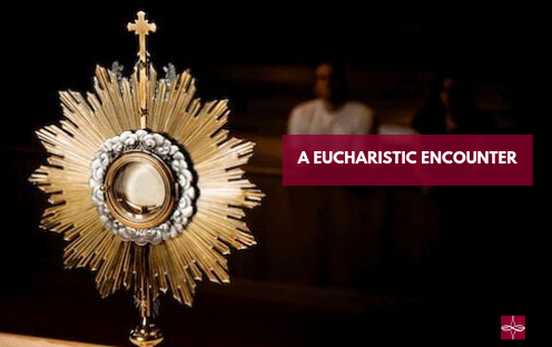

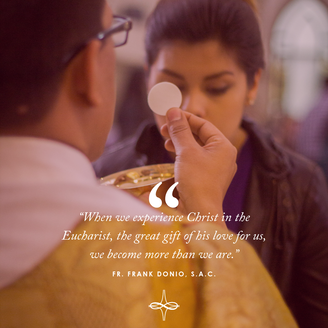
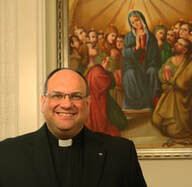
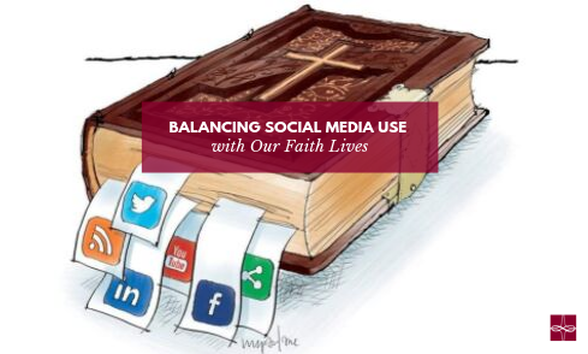

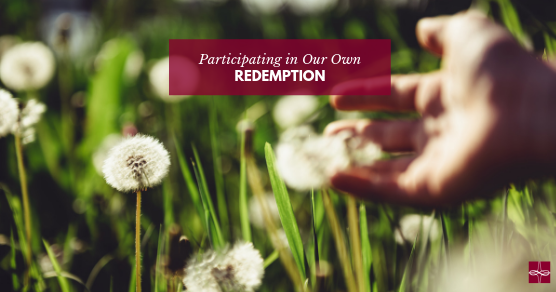

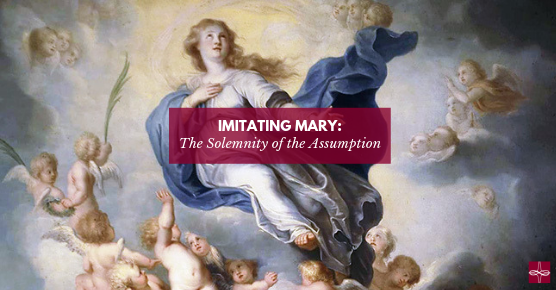



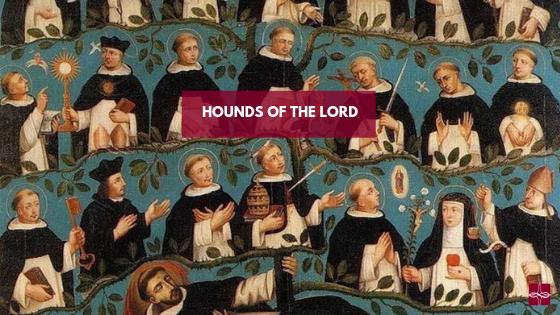





 RSS Feed
RSS Feed